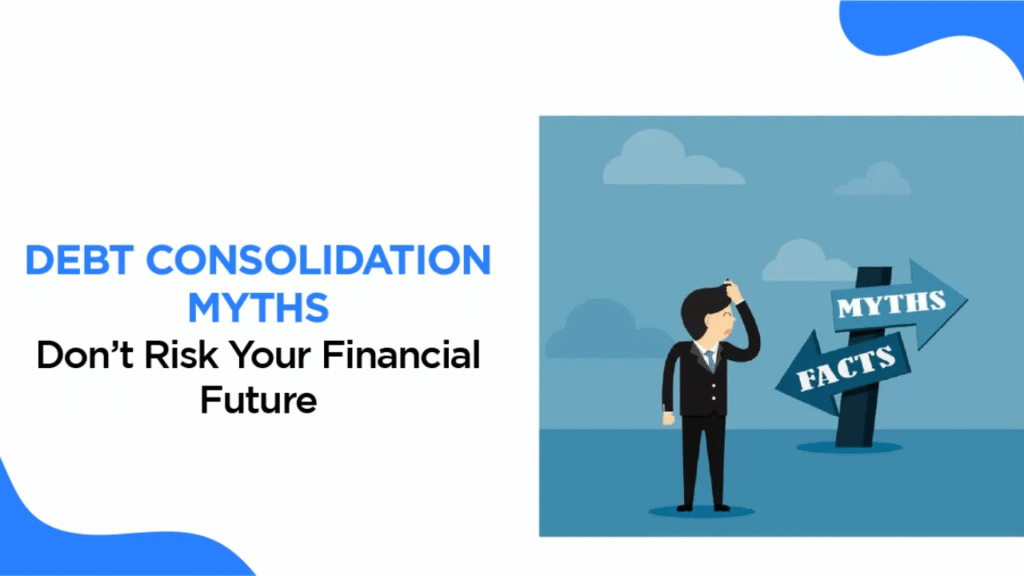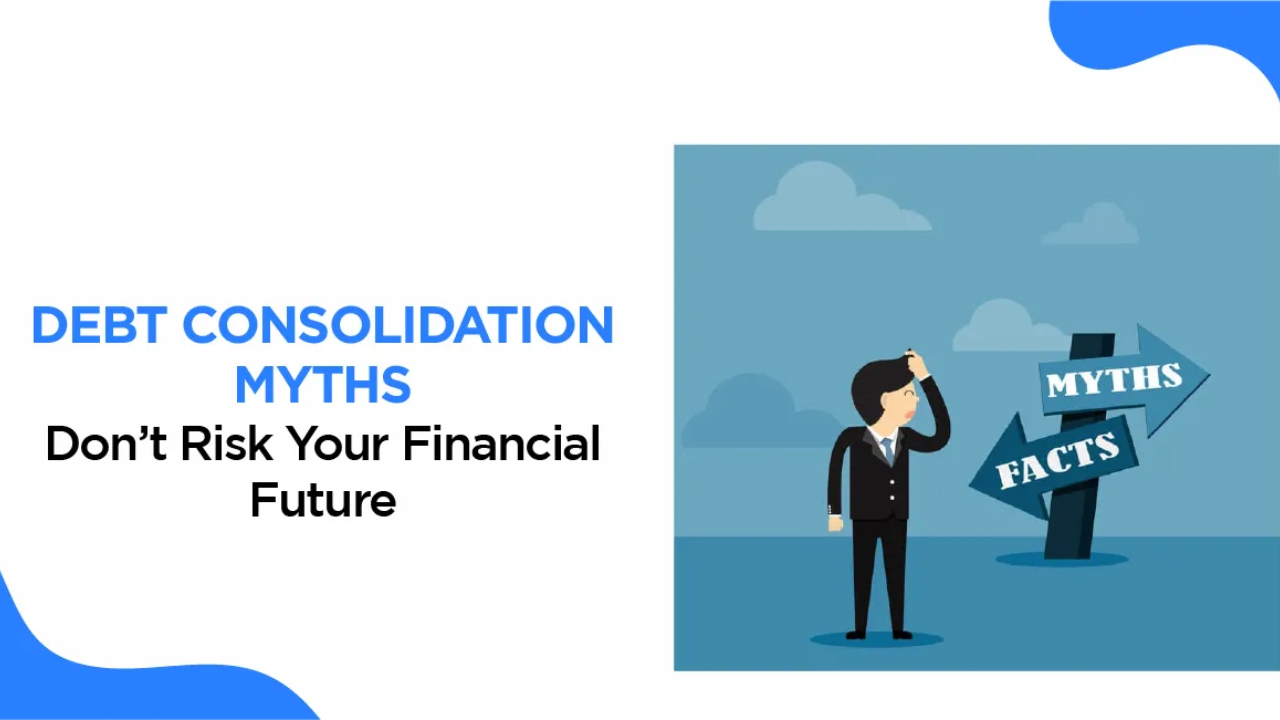
Debt relief can be a valuable lifeline for consumers overwhelmed by credit card bills, medical debt, and personal loans. But misinformation surrounding it often leads to hesitation, poor decisions, or financial harm. Believing the wrong things about debt relief could cost you money, damage your credit further, or delay your financial recovery.
In this article, we’ll debunk five common myths about debt relief that could keep you trapped in debt longer than necessary. We’ll also clarify how legitimate debt relief really works and help you make better-informed decisions.
Overview Table: Myths vs. Reality in Debt Relief
| Debt Relief Myth | Reality |
|---|---|
| It’s only for people with no income | It’s for anyone struggling with high unsecured debt |
| Debt relief always ruins your credit | It can impact credit, but so can missed payments |
| All debt relief companies are scams | Reputable nonprofit and accredited firms exist |
| Bankruptcy is always the best option | It’s a last resort; other options can work first |
| You must pay the full amount of your debt | Settlements and plans can reduce your total owed |
Myth #1: Debt Relief Is Only for the Financially Desperate
The Truth: Debt relief is not just for people who are broke or unemployed. Many middle-income earners seek debt relief because they are juggling multiple bills, interest rates, or unexpected emergencies like medical expenses.
Debt relief can help if you:
- Are making only minimum payments
- Have high-interest debts accumulating
- Want to avoid bankruptcy
- Need to regain control over your finances
Fact: Programs like debt consolidation, credit counseling, and settlement are designed to help people at various income levels, not just the destitute.
Myth #2: Debt Relief Will Destroy Your Credit Forever
The Truth: Any form of debt relief can temporarily affect your credit—but so can falling behind on your bills. In some cases, debt relief may actually help improve your credit in the long run by helping you reduce your total debt burden.
Comparison Table: Credit Impact by Debt Relief Option
| Method | Short-Term Credit Impact | Long-Term Potential |
|---|---|---|
| Debt Settlement | High | Positive after debt is cleared |
| Debt Consolidation | Low to moderate | Can boost score if used responsibly |
| Credit Counseling Plan | Minimal | Stabilizing impact over time |
| Bankruptcy | Severe | Long recovery (7–10 years) |
Fact: While your credit score may dip initially, eliminating or reducing debt leads to faster recovery and future borrowing power.
Myth #3: All Debt Relief Companies Are Scams
The Truth: While some fraudulent debt relief companies exist, many legitimate and trustworthy agencies offer ethical and legal support. The key is doing your research.
Tips to Identify Reputable Firms:
- Look for accreditation (e.g., NFCC, FCAA)
- Check Better Business Bureau ratings
- Read verified customer reviews
- Never pay upfront fees for settlement services
- Ask about licensing in your state
Fact: The FTC regulates debt relief firms, and nonprofit credit counseling agencies are available nationwide.
Myth #4: Bankruptcy Is Always the Best Way Out
The Truth: Bankruptcy may wipe out most unsecured debt, but it comes with long-term consequences, including a major credit score hit and public records that stay for years.
Before choosing bankruptcy, consider:
- Debt management plans
- Negotiation or settlement options
- Refinancing or consolidation loans
Bankruptcy should be a last resort when:
- You have no way to repay any part of your debt
- Lawsuits or wage garnishments are underway
- Other debt relief options have failed
Fact: Many people resolve debt with less damaging alternatives than bankruptcy.
Myth #5: You Must Repay the Full Amount You Owe
The Truth: Debt relief programs exist precisely because many people cannot repay their full balances. With professional negotiation or creditor agreements, you might settle your debt for less than 50% of the total.
Examples of Relief Options That Reduce Total Balance:
- Debt settlement: Negotiates a lump-sum payoff
- Hardship programs: Offer interest rate or fee reductions
- Credit counseling plans: Consolidate debts and waive penalties
Fact: You don’t need to suffer under impossible repayment terms—relief programs can legally and ethically reduce what you owe.
Summary Table: What You Should Really Know
| Misbelief | Correct Understanding |
|---|---|
| Only broke people need help | Debt relief fits many income levels |
| Relief kills your credit | Can be a tool to rebuild credit long term |
| All companies are scams | Many reputable, regulated firms exist |
| Bankruptcy is easiest | Other options are safer and often more effective |
| You must repay everything | Legal settlement programs can reduce total owed |
3 Best One-Line FAQs
Q: Can debt relief actually reduce my total balance?
Yes, through programs like settlement and negotiation, you may legally pay less than what you owe.
Q: Will I get scammed by a debt relief company?
Only if you choose poorly—stick with certified, nonprofit, or highly rated agencies to stay safe.
Q: Is debt relief better than bankruptcy?
In many cases, yes—it can resolve debt without the severe long-term damage bankruptcy causes.

